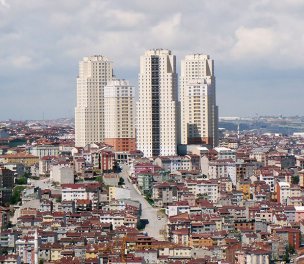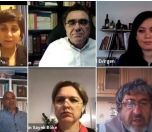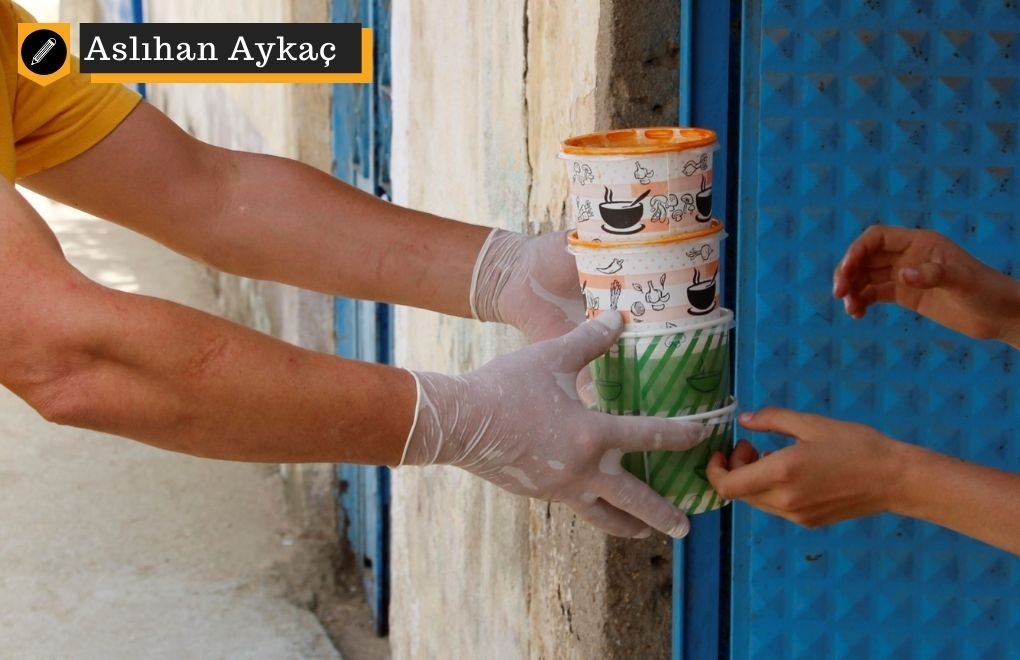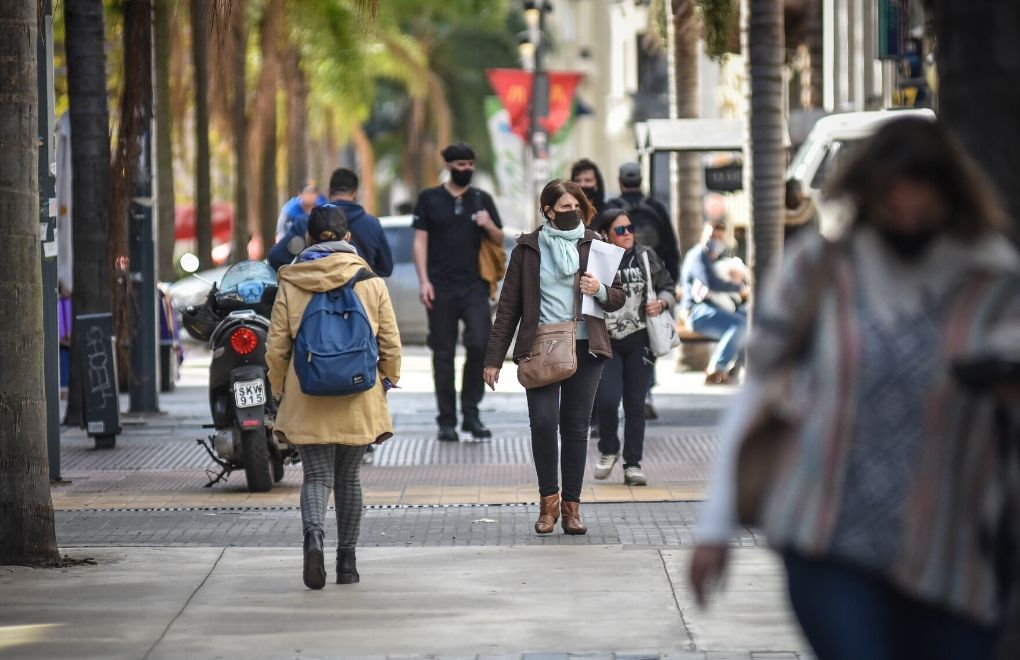* Photo: Anadolu Agency (AA)
The COVID-19 pandemic and the precautionary measures have led to a serious contraction in the global economy. The World Economic Outlook Report of IMF, titled The Great Lockdown, predicts a 3 percent contraction in the global economy for the year 2020, and projections for recovery are estimated for 2021, at an approximate rate of 5.8 percent.
While the report underlines the importance of fiscal policies to keep economic transactions stable and supporting mechanisms to keep businesses from closing and households from deprivation, it seems like all these efforts are geared more towards keeping the global economy intact rather than saving the households, the small businesses or the workers, because the global economy is considered to be "too big to fail".
Essential goods and rethinking consumerism
The lockdown period put a significant halt to daily activities and social interactions, heavily altering the consumption patterns associated with such a daily routine. Suddenly all food and beverage consumption was minimized, many will face some challenge when having to order a Venti Caramel Macchiato with nonfat milk but extra caramel. Take-out or delivery food options have decreased and confined households have resorted to DIY food options, traditionally called cooking. Fashion industry has become completely obsolete as zoom interactions permit limited visibility online. Make-up has become a durable good challenging the conventional understanding of durability. The gist of the story is that what we have thought to be essential in our lives turned out to be easily dispensable.
The great lockdown has transformed the way we think about goods, it has given us the opportunity to think about how we relate to things. It has become a moment of reinventing home, rebuilding home, and a rediscovery of the skills we could use for self-sustenance. All those pictures of home-made bread, grandma recipes brought back to life, spring plants and decorations suggest that all the things we have delegated to the market could actually be achieved at home. For the last four decades, consumerist ideology has indoctrinated people with the idea of ownership, with an obsession of things, all for the sake of generating demand for the market and keeping the global economy going, hence capital accumulating. This artificial demand creation has enslaved generations of people with an understanding that identities could only be built with things.
Essential workers and revalorization of labor
Another thing that the pandemic process has shown is the discrepancy between the labor value of essential workers and the value attributed to the not-so-essential business service people, the managerial elite, the créme de la créme of the service industries.
Other than the health care personnel and health support workers which make up the core of the "frontline workers", the most widely used services were cashiers, delivery people and others in transportation, sanitation workers, various cleaning and maintenance services especially in the urban setting. The lesser visible economic sectors that continued active is construction, farming, fisheries and food production such as bakeries.
Those who have to work during the pandemic are risking their lives in order to sustain the lives of others. Those who have to actively work in the work-place as opposed to working from home are facing a much greater health hazard. However, the biggest paradox in the situation is that despite the increasing health risk and the labor-intensive nature of their occupations, essential workers remain in the lower echelons of the wage scale, as they are considered to be in low-skill, low-income positions.
This needs to be taken as a historical moment to reconsider the value of labor, going back to the classical Marxist conceptualization. Commodities embed in themselves a use value for meeting a certain need or function and an exchange value for the amount of labor necessary for their production. Labor as a specific type of commodity for its social composition also has a use value and an exchange value.
Given the existing complexity and the hierarchical structure of the global economy, the use value and exchange value of labor is significantly detached. Labor that is central for the maintenance of the system is attributed massive use value, whereas labor that is central for the sustenance of human life has almost no use value. Labor that has limited use for humane purposes receives high exchange value and labor that directly serves human beings basically has none.
Essence of capitalism and possible divergences
An oversimplified conceptualization of capitalism will stand upon three major principles: Individual ownership, namely private property secured by the rule of law of the state; unequal exchange in the market resulting in social inequality and dependency, and finally capital accumulation generated by the rip off of surplus value from the workers.
These pillars have become globally operational, further expanding the spatial boundaries of social and economic inequality, with deeper penetration of the market rationale in the lives of ordinary citizens. The more we delve into consumer trends, accumulation processes and ownership goals the more we become subsumed in the essence of capitalism. The great lockdown creates a setting in which this essence of capitalism can be questioned radically.
How far can we survive out of the market? What have we learned about the essential and the non-essential goods in the past few months? What have we realized about work and occupations and the value we generate through the labor processes we are a part of? Are we generating anything essential at work? The pandemic society needs to question its market dependency and economic alternatives that will value human dignity over systemic stability, that reorganize production and consumption simultaneously, so that commodities in general and labor in particular will find its true value.
The existing priorities on the continuity of the system have to give way to those that focus on sustainability of nature, and human survival within that nature. Global capitalism represents the most complex and distant level of organization regarding human's relationship to nature. Now is the time to simplify this relationship and overcome that distance.
About Aslıhan AykaçShe received her BA degree at Boğaziçi University on Political Science and International Relations. She completed her graduate studies in Sociology at Binghamton University. Her dissertation was translated and published in Turkish as Yeni İşler, Yeni İşçiler [New Jobs, New Workers] by İletişim Publications. She was granted funding by the Middle East Research Competition in 2007 and her research on a comparative analysis of the social security reform and its impact on the labor market in Turkey was published by Toplum ve Bilim, A well-known journal on Turkish studies. She was a Fulbright Grantee at Rutgers University for the academic year 2014-2015, and her research was published by Routledge Books in 2017, with the title Political Economy of Employment Relations: Alternative Theory and Practice. The same book was translated into Turkish and published by Metis Books in 2018. She is currently teaching at Ege University, Department of International Relations. |
(AA/SD)









